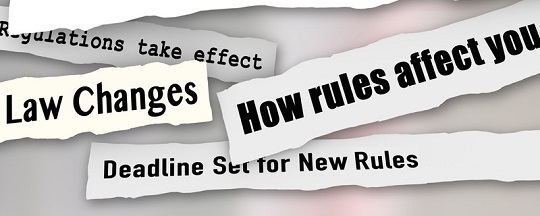
By Katie Flood
On March 4, 2015, the General Services Administration (GSA) issued a Proposed Rule to amend the GSA’s Acquisition Regulations. The rule outlines a plan to adopt clauses requiring vendors to report transactional data from orders and prices paid by ordering activities. This includes orders placed against FSS contracts & non-FSS contract vehicles, GWACs, and IDIQ contracts.
The Proposed Rule signals a shift away from GSA’s current price enforcement mechanism, the Price Reductions Clause, in favor of a new “Transactional Data Reporting” clause. The anticipated new clause will require contractors to report on a monthly basis on eleven separate elements of transactional data, including:
- Unit measure
- Quantity of item sold
- Universal product code
- Prices paid per unit; and
- Total price
GSA will then sort this data into various “categories,” which will be shared across the federal government.
For FSS vehicles, the clause would be introduced in phases, beginning with a pilot for select products and commoditized services. Once adopted, the Proposed Rule would apply immediately to GWACs and IDIQ vehicles managed by GSA. The new clause is meant to be paired with changes to the basis of award monitoring requirement of the existing Price Reductions Clause, essentially replacing the basis of award customer tracking provision of the existing Price Reductions Clause.
GSA projects that there will be a significant overall compliance burden reduction for participating FSS contractors. However, this would not apply to the Department of Veterans Affairs FSS contract holders.
These announced GSAR changes are spurred by the Office of Federal Procurement Policy’s recently-announced “new vision” for Federal purchasing, which marks a shift from managing purchases and price on individual contracting actions to managing entire “categories” of purchases across the Government “collaboratively.” Such category management will involve buying and managing commonly purchased goods and services through categories like information technology hardware and software.
As part of this category management, GSA is creating a Common Acquisition Platform, an online marketplace to identify best-in-class contracts issued by GSA or other agencies, best practices, and other information agencies need to reduce the proliferation of duplicative contract vehicles and to deliver best values to the government. Part of the platform will be a ready access to prices previously paid by other governmental buyers for a similar product or service under similar terms and conditions. Governmental buyers will then be able to use that data as part of their evaluation of fair and reasonable pricing for a particular procurement.
The Proposed Rule is meant to create a transactional data reporting clause to improve GSA’s ability to conduct meaningful price analysis and more efficiently and effectively validate fair and reasonable pricing on both its non-FSS and FSS vehicles. Such transactional data reporting is currently utilized on GSA’s Federal Strategic Sourcing Initiative.
GSA seeks to allow its customers to actively compare prices prior to placing orders under the vehicles and hopes to shift the emphasis from “vertical” price comparison (comparing an individual contractor’s commercial prices to the prices it charges on Schedule, for example) to “horizontal” price comparison (comparing Schedule contract holders’ prices to each other).
The proposed tracking and reporting requirements will obviously have a sizeable impact on current GSA contract holders. GSA intends to replace the current Price Reduction Clause requirements with the new tracking and reporting, which estimates will reduce the annual burden on contractors by more than 85%, based on the number of hours needed to track compliance. However, the Proposed Rule would require contractors to report all contract sales on a monthly basis, including “zero” sales.
Contractors will also be required to file their transactional data through an online portal created by GSA, but not much is known about the website as of now. Additionally, there is little information regarding how GSA will actively “manage” the various “categories” of spending created through the transactional data reporting. Contractors need to know how this will potentially impact their existing agency relationships and future marketing opportunities.
Additionally, GSA should indicate the general availability of the transactional data which is reported, and that it will take steps to protect contractors’ confidential and proprietary information.
We believe that current GSA contractors should carefully review the Proposed Rule, which can be found at 80 Fed. Reg. 11619 to see how the proposed changes will impact both their sales and the compliance practices. We recommend that interested contractors participate in GSA’s public meeting on April 17, 2015 and to possibly submit comments on the Proposed Rule to identify any areas of concern.
About the Author: Katie Flood is an associate with PilieroMazza in the Government Contracts Group. She may be reached at kflood@pilieromazza.com.


